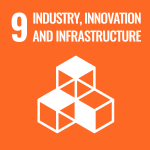A “parasol” from recycled plastics to protect pineapples from sunburn
Did you know that pineapples have many health benefits? They are loaded with nutrients, contain disease-fighting antioxidants, and possibly help digestion. Pineapples require a warm and humid climate to thrive. Paradoxically, they are susceptible to damage from solar radiation and high temperatures (> 32°C) which can significantly reduce marketable yield and cut deep into a grower’s profit. Symptoms include sunburn or bleaching which are visible as yellow-white skin that turns pale grey or brown upon damage to the tissue underneath. This damaged tissue is susceptible to disease and infestation.
BASF has helped develop a recycled high-density polyethylene (HDPE) that supports shielding the fruit from direct sunlight while still allowing photosynthesis to occur: By adding a tailored stabiliser solution, it became possible to develop this shield using 100% recycled plastics. BASF and 3T industries, a leading recycling company in Malaysia, have put this technology into practice.
Plastic additives specifically for the agricultural sector are highly customised to fulfil critical customer needs for enhanced crop protection solutions. The line of stabilisers for recycling offers a one-pack solution that is immediately available for the recycler without the need for further premixing. They are also more efficient at lower concentrations compared to traditional additive systems and reduces the overall quantity required. This results in easy and accurate dosing, improved product quality, as well as upgraded recyclate for use in long-term applications.
BASF’s plastic additives can be used towards the production of high-value plastics by using a combination of recycled plastics and virgin materials. These solutions bring significant sustainability value to plastic applications by improving durability, saving energy, as well as reducing waste and emissions.


